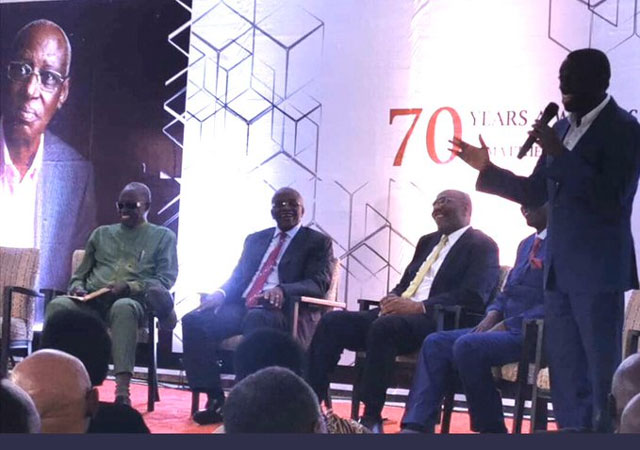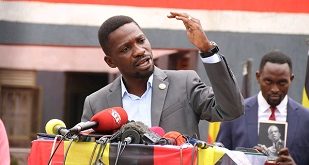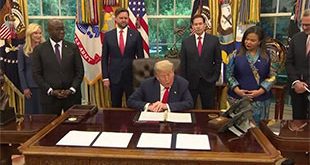
THE LAST WORD: How the leading opposition figure hit the nail on the head when talking about money and politics
THE LAST WORD | By Andrew M. Mwenda | Last week, I attended the launch of an autobiography by former cabinet minister, Mathew Rukikaire: 70 Years a Witness. In attendance was Dr. Kizza Besigye, the leading pillar of the opposition in Uganda and four times presidential candidate against President Yoweri Museveni. In his speech, Besigye said UPM polled badly in the 1980 elections because its candidates had no money. Besigye said Rukikaire got the highest number of votes of all UPM candidates in 1980, even polling higher than party president, Museveni, because he (Rukikaire) was rich.
There are exceptions to this rule. However, overall political competition requires money everywhere, even in the richest countries. In poor countries, money gains greater significance because the electorate is ethnically diverse, poor and agrarian. For most poor people, small donations of sugar or meat and soap acquire disproportionate importance. Agrarian societies have values and norms where the poor expect the rich/leaders in society to help them in times of need and they too reciprocate with loyalty.
I made exactly the same point as Besigye in this column last week. That to be an effective politician in poor, ethnically diverse agrarian societies one needs money. Corrupt politicians remain popular because they share their “loot” with their co-ethnics. For instance, the politician helps people with personal needs like school fees, medical bills, funeral and wedding expenses. Our politicians are always under enormous pressure to meet these needs – whether the money is stolen from the state or acquired honestly is irrelevant. This is because our voters do not distinguish between the private resources of a politician and the public finances of the state.
Corruption is, therefore, a subconsciously democratically sanctioned behavior. This explains why corrupt politicians who are generous in their ethnic and/or religious communities win elections. In societies with ethnic tensions, people are even more willing to support one of their own that is accused of criminal activity, seeing such accusations as attempts to sideline them. Ethnic tensions undermine the rule of law as people think the corrupt steals for them.
For example, India has the longest surviving democracy of any poor country in the world today. In this year’s elections, 20% of candidates for parliament were facing criminal charges ranging from murder to rape and extortion. In fact this number has been growing at a rate of 2% in every election. As a result, one third of India’s parliament is under criminal indictment. According to a report by the Carnegie Endowment appropriately titled `When Crime Pays’ a candidate with a criminal record in India is three times more likely to win elections than one who is clean.
 The Independent Uganda: You get the Truth we Pay the Price
The Independent Uganda: You get the Truth we Pay the Price






Mwenda, it becomes self-evident that overly politically ambitious Museveni, is despicably and inherently an unpopular politician. Because in 1980, he did have a penny in his name to win any voter on his side except maybe his parents and immediate family members like Janet Kataha, to balance the power of money, the manresorted to primitive violence to ascend to power.
And thereafter, Mr. Museveni resorted to the evil “end justifies the means” through abuse of office, power, corruption and massive voters bribery; in order to cling to a dirty power, while keeping the violence card close to his heart, because it works wonders for his stay in power.
Correction: I meant Mr. Museveni did not have a penny in his name.
1. Haven’t the books written about the NRM liberation become stale? Its like it has become a source of income for some ex NRA liberators.
2.In the 1970’s and 80’s most Ugandans were in need of basic goods like salt,sugar,paraffin and soap may be in the mind of the ex NRA liberators like Besigye,Rukikaire today’s equivalent of paraffin and sugar are their farms and Suv cars.
3.Naturally giving out money is a sign of love and kindness people never ask for the source of one’s money.
4. I am so skeptical about the 1980 election because there was a lot of intimidation ,no international election observers ,no social media.
Commonwealth observers were present and they endorsed the outcome.
@Alifunisi what do you want from me? Which common wealth observers were those ?Are you aware that Ugandans under Obote and Amin’s regime were mesmerized by Kenya you would think that they are in London; Honestly what were the stakes in the 1980s to warrant an election?Unlike today when Ugandans are faced with environmental,social,economic and social problems,in the 1980’s all that mattered to a Ugandan was sugar and soap actually they had no or lousy ambitions Secondly; the environment alone would not warrant an an election for example between Kololo and Nakasero alone there would be 30 roads blocks tell me what would put a Ugandan in the mood of participating in an election? .
When a Ugandan casts his or her vote today they are confident that it will result into policy review for example UPE and USE.
You are comparing the un-comparables, can you imagine talking about election in 1980. I was there and as a matter of fact UPC massively rigid the 1980 election to an extent that even if M7 had not gone to the bush something else who have happened to remove UPC from power.